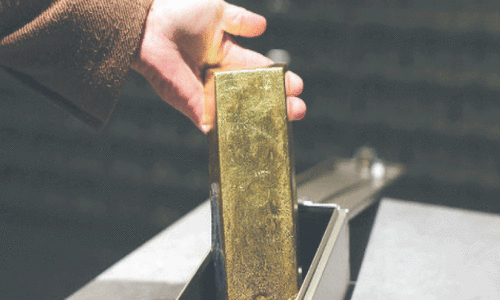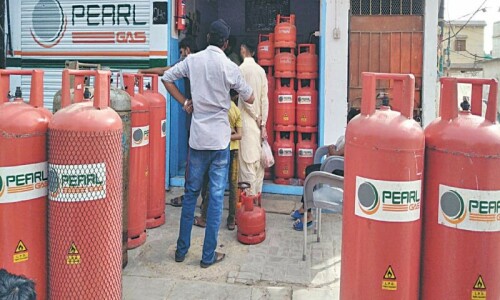I WROTE to three different friends to tell them a video clip they shared from journalist Talat Hussain’s vlog on Nov 30 was edited and a misrepresentation of facts. I can understand its shareability factor: the thumbnail says “116 confirmed dead” and in the video he says he can confirm 116 deaths, use of excessive force and devastated families burying their loved ones. But the video published was about Kurram. He even says in the video that once people realise his vlog is not about the still controversial figure of dead PTI demonstrators, they won’t watch it further.
He was proved right in a way.
One friend was shocked when I told her and removed it immediately. I knew she would because we are real friends in that we meet and discuss life and politics. Another friend asked me to send a link to the whole video saying she had received the clip from highly reliable sources. She then got back to me and said she’d seen it and blamed Talat Hussain for resorting to clickbait. The third did not reply. I am social media friends with the latter two; we have not met in 12 or so years as they live in the US. At the time of writing, neither had removed the video and their posts had been shared 86 times between the two. A small figure in the grand scheme of things.
I reached out to Talat Hussain to ask how he felt about his video being edited to suit the version about hundreds of deaths in Islamabad. He didn’t seem irked or surprised. He said it showed how gullible people are. He also said it was an example of confirmation bias, how you want to believe some things, especially if they are close to you versus Kurram, which isn’t on your radar, physically or interest wise.
At the time of writing, his original video on YouTube had around 130,000 views, whereas I am going to make a wild guess and say the ‘other version’ had a lot more. It is difficult to ascertain how many times a video is shared on WhatsApp due to its end-to-end encryption. But we know WhatsApp is a popular sharing platform because the government has hit it with several restrictions — we’ve all faced difficulty in sharing images, audio and voice notes for example.
Every year, it becomes harder to practise journalism in Pakistan.
Every year, it becomes harder to practise journalism in Pakistan. Everyone has their definition of journalism and rarely does it come close to what journalists do, which to be fair, is trying to get accurate information to audiences. Don’t confuse this with analysts on prime time TV sharing their opinions.
Reporters Without Borders said Pakistan had dropped two places in the World Press Freedom Index in 2023 and ranks 152 out of 180 countries. Just a year before, Pakistan had moved up seven places to 150. They referred to then prime minister Imran Khan as a “press freedom predator”, one of the world’s 37 worst rulers when it came to press freedoms.
Who are our advocates for press freedom? When in power, governments muzzle our freedoms and then cite us as brave when they are in opposition. It is a vicious cycle. People only support journalists who confirm their opinions. Too many journalists have died for doing their job; seven in the first half of this year, which is shockingly high.
It is against this backdrop that journalists work. The popular vlogger and TV anchor S. Muzammil Shah knows too well the consequences of reporting. On Wednesday, he alleged that armed men broke into his house looking for him and threatened his family and fired shots in the air. I checked in with him to ask if he’s OK (he is) but wanted to give him some space so I went online to see what people were saying. I wish I hadn’t. The most common refrain was the attack was a retribution for his reporting on the Islamabad rally. Few fought back and said it was wrong and called people out for condoning violence.
We have been in this mess for a long time now and it needs some form of redressal. I don’t believe slowing down the internet, and banning platforms or social media users will solve anything. Journalists need support and should resist the temptation of the YouTube-verse which will earn them clicks and dollars while degrading journalistic values. The answer lies in more reporting, less talking, more listening and in challenging the government with its fake news (here, I am looking at the minister of state for IT, Shaza Fatima, who said the internet is working fine). It requires leadership in the PTI (that wants to get off the streets and govern) to stand up to its social media machinery abroad and say ‘enough’. Give us some space to do the work.
The writer is a journalism instructor.
X: @LedeingLady
Published in Dawn, December 8th, 2024












































